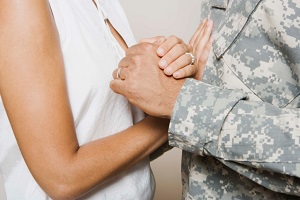 Traumatic events usually occur without notice and result in people trying to deal with the aftereffects long after the event is over. Recent events, such as the Boston Marathon bombings, bring to light how traumatic events can create effects for long periods of time. Traumatic events can result in the development of posttraumatic stress (PTSD), which is a prevalent and serious mental health issue.
Traumatic events usually occur without notice and result in people trying to deal with the aftereffects long after the event is over. Recent events, such as the Boston Marathon bombings, bring to light how traumatic events can create effects for long periods of time. Traumatic events can result in the development of posttraumatic stress (PTSD), which is a prevalent and serious mental health issue.
According to the National Institute for Mental Health, 26.2% of the adult American population will meet the criteria for a diagnosis of PTSD at some point in their lifetime. PTSD can severely impact a person’s ability to function in day-to-day life and interactions and relationships with loved ones. In my practice, I have noticed that relationships can become strained or distant, or even end due to the stress caused by PTSD.
Just as it is important for the person who experienced the trauma to address his or her symptoms, it is also important for their loved ones. Loved ones often report feeling helpless in assisting the person with PTSD to feel better. So what can loved ones do to help those who have PTSD in their recovery?
Practice good self-care. When a loved one has been traumatized, the stress can take a toll on that person’s entire support network. Making sure you are practicing good self–care habits such as eating well, getting enough sleep and rest, and continuing to engage in activities you find pleasurable can be very helpful in addressing the stress that can come with a traumatic event.
Offer your support, but don’t push the person affected with PTSD to describe or talk about the event that traumatized them if they do not want to. Many people affected with PTSD do not wish to “relive” the trauma by frequently talking about it or by going into detail. Sometimes well-meaning loved ones will push them to talk about the trauma without realizing that doing so can do more harm than good. Loved ones may feel offended or rejected when the traumatized individual does not want to talk about the incident. Know that this is nothing to personalize. You can be there as a supportive person to listen when they want to talk, without trying to “fix” what they are going through. Simply saying something like, “It sounds like that was really hard” or just letting them know you are happy to be a listener can be validating and can help the person to feel supported as they work through their trauma.
Encourage the person affected with PTSD to seek professional help. PTSD is a serious mental health issue that requires professional assistance to treat and overcome. There are many treatment modalities that have been successful in the treatment of PTSD. It is possible for a person with PTSD to get to the point where the traumatic event has little or no disturbance associated with it. There is much hope for overcoming PTSD, but it is much more likely for someone to overcome PTSD with professional help. Support groups can also be helpful for people suffering from PTSD as it gives them additional care in their recovery.
Get support and treatment for yourself. Having someone you love go through a traumatic event and supporting him or her as they recover can result in secondary trauma. Secondary trauma is defined by Figley (1995) as “the stress resulting from helping or wanting to help a traumatized or suffering person.” The signs of secondary trauma can include similar symptoms to PTSD, including (but not limited to) having overwhelming emotions, exhaustion, having thoughts that are intrusive and disturbing, difficulty concentrating, nightmares, and detachment from others. These are symptoms a therapist and support group can help you overcome. Be aware of your own emotions and mental health in order to identify the signs early.
Above all, don’t go through such a difficult time alone. There is support and an abundance of resources available to help people with PTSD and their caregivers overcome trauma and secondary trauma.
References:
- Figley, C.R. (Ed.) (1995). Compassion fatigue: Secondary traumatic stress disorders from treating the traumatized. New York: Brunner/Mazel, p.7.
- National Institute of Mental Health. Post-traumatic stress disorder among adults. NIMH. Retrieved May 28, 2013. From nimh.nih.gov/statistics/1ad_ptsd_adult.shtml.

The preceding article was solely written by the author named above. Any views and opinions expressed are not necessarily shared by GoodTherapy.org. Questions or concerns about the preceding article can be directed to the author or posted as a comment below.

 Study Finds PTSD Is Not Being Treated Correctly
Study Finds PTSD Is Not Being Treated Correctly What to Do in the Wake of Tragedy
What to Do in the Wake of Tragedy Anthropomorphizing PTSD Symptoms, Part I: Flashbacks and Nightmares
Anthropomorphizing PTSD Symptoms, Part I: Flashbacks and Nightmares

